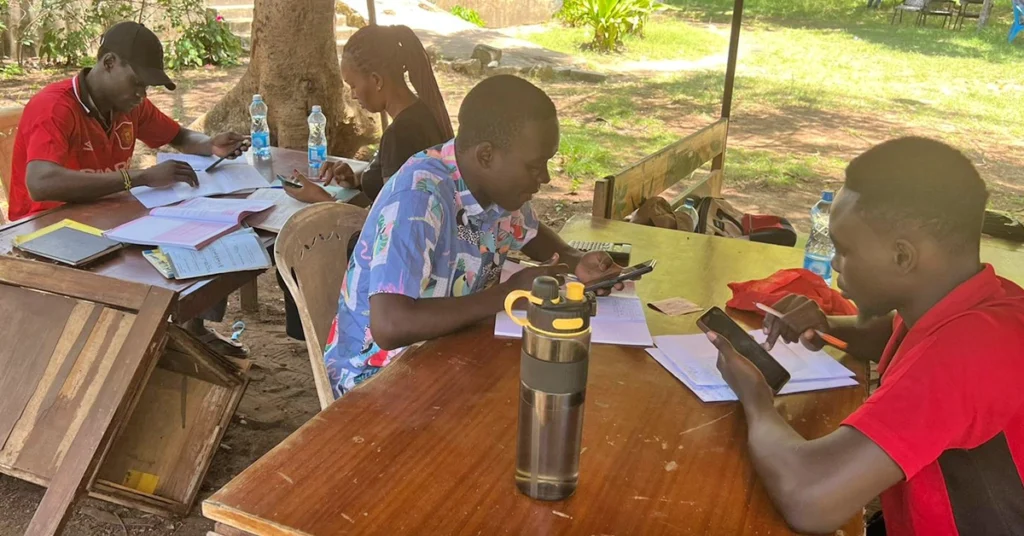A Look at KENET’s Transformative Connectivity in Rural Kenya
It’s hard to imagine modern education without the Internet. Yet for many schools and institutions across Kenya, reliable connectivity remains out of reach. The Internet plays a key role in connectivity and technology adoption while promoting digital literacy across educational institutions in the country. That’s where the Kenya Education Network (KENET) comes in.
KENET is a not-for-profit organization and the country’s official National Research and Education Network (NREN). Its mission is simple but ambitious: to enable institutions to access the Internet for research, learning and collaboration purposes.
As a grantee partner of the Internet Society Foundation’s Building Opportunities/Leveraging Technologies (BOLT) program, KENET is tackling one of Kenya’s biggest challenges: closing the Internet access gap in underserved areas.
Expanding Connectivity

Building on the foundation laid during phase 1, where KENET successfully connected 20 community institutions, phase 2 aims to scale this model to even more rural counties. Building on the success of its first phase, the BOLT program is taking its efforts even further. With a grant of USD $300,000 from the Internet Society Foundation, KENET is connecting 28 new institutions in rural and underserved areas, places where Internet penetration is only 22%, compared to 51% in cities (KNBS, 2020).
The focus is on schools, hospitals, libraries, and training institutes in counties like Garissa, Narok, Nandi, Busia, Bungoma, Kilifi, and Meru. These connections aren’t just about cables and routers; they’re about giving entire communities access to tools for education, healthcare, and opportunity.
Project activities include everything from site surveys and equipment installation (routers, switches, and access points) to integrating solar power solutions to keep the network running in areas where electricity is unreliable.
Real Impact: Lives Transformed
The results from the BOLT program phase 1 show what’s possible when connectivity meets need:
- A technical college that once had 100 donated computers sitting idle now has a fully functional lab thanks to KENET’s Internet connectivity.
- A high school reported that teachers are actively integrating digital tools into their lessons.
- A women’s library, now online, has expanded its services and even launched new classes.
With phase 2, KENET expects to see at least 5,000 students and teachers accessing online learning resources, 98% network uptime, and affordable access at just USD $76 per month for 50 Mbps. Success will also be tracked through impact surveys, usage data, and stories from students, teachers, and administrators, bringing the human side of digital inclusion to life.
KENET’s initial BOLT project connected 20 beneficiary institutions through partnerships with 11 anchor universities across Kenya. These included secondary schools, hospitals, and public libraries located in rural and underserved counties such as Garissa, Vihiga, Bungoma, Meru, Narok, Busia, and Kilifi.
Each anchor university served as a connectivity hub, extending affordable broadband to nearby schools, hospitals, and libraries using fiber or point-to-point radio links. This cluster model not only reduced costs but also fostered mentorship and local capacity building between universities and their surrounding communities.
By the end of Phase 1, KENET had demonstrated a scalable and sustainable model for rural connectivity, directly benefiting over 10,000 students, educators, and healthcare professionals. Many of these sites remain active and operational today, with the universities continuing to serve as digital anchors for their regions.
Innovation that Lasts
KENET knows that sustainable connectivity isn’t just about installing equipment, it’s about building models that last. Their approach includes:
- Leveraging existing infrastructure to keep costs low.
- Solar power integration to keep connections alive during frequent blackouts.
- Eduroam rollout, giving students and researchers seamless, secure Wi-Fi access across institutions.
- Community-driven partnerships, engaging universities to identify new beneficiaries.
- Capacity building, with training for lecturers and technical staff, plus a dedicated “School Spoter” portal filled with educational resources.
This mix of technology, innovation, and community involvement ensures that institutions don’t just get connected, they stay connected.
Overcoming Challenges
Of course, the road hasn’t been without hurdles. KENET has had to navigate significant challenges, including addressing outdated or inadequate infrastructure and tackling the issue of unstable power supplies. In rural areas, the unreliability of power adversely affects Internet service quality, a problem KENET mitigates by integrating solar power solutions and inverters to ensure a stable supply for network equipment. A key organizational challenge stemmed from delays in formalizing agreements or Memorandums of Understanding (MOUs) with institutions, a lesson learned from phase 1 that posed significant hurdles impacting implementation timelines. While certain remote institutions were connected using satellite connectivity, the high cost of this solution was noted, rendering it unsustainable in the long term. The satellite solution was ultimately not considered a low-cost option, despite initial expectations. This issue contributes to the broader challenge of affordability struggles for schools with tight budgets. While some schools can afford approximately USD $50 to $100 monthly (KES 5,000 to KES 10,000), some institutions have reported that paying the required amount for sustainability is not feasible. Finally, KENET frequently encounters a lack of in-house technical expertise at institutions. KENET is addressing this by committing to capacity building, which involves implementing annual training programs, workshops, and online resources to empower educators, researchers, and students with the necessary skills and knowledge to leverage Internet technologies. Despite these challenges, the organization meets each barrier with practical solutions, from solar power setups to capacity-building workshops.
Looking Ahead
KENET’s journey is about more than connecting institutions to the Internet. It’s about transforming how students learn, how researchers collaborate, and how communities access opportunities.
By combining innovation with community ownership and sustainability, KENET is building a brighter future for Kenya’s next generation of learners, innovators, and leaders.
